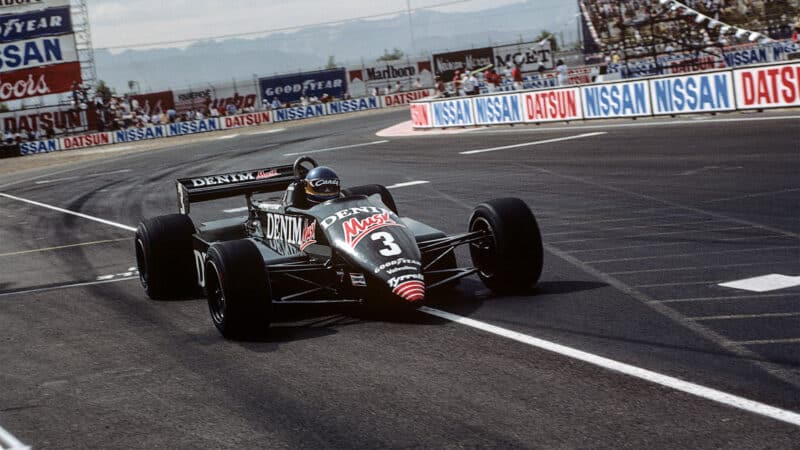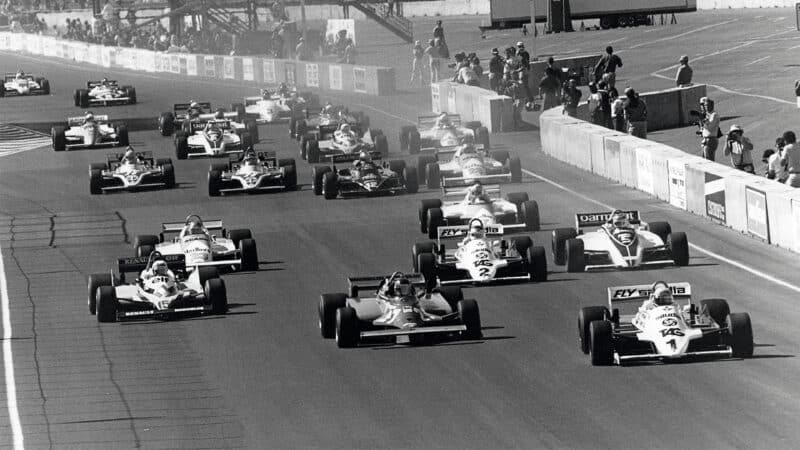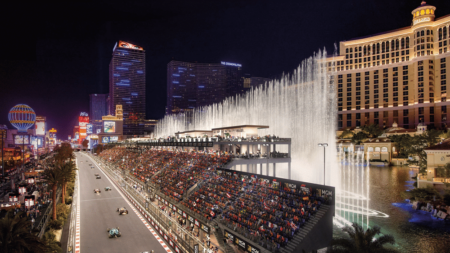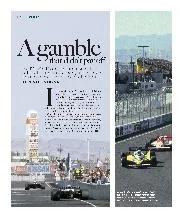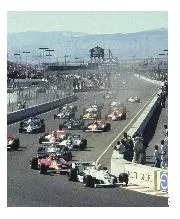Motor Sport was not impressed by the whole experience. But for a change it wasn’t Denis Jenkinson or Alan Henry writing our report. Instead, it carried the initials of ‘JH (on behalf of DSJ and AH)’. That must be Jeff Hutchinson, more usually a super-sub at Autosport, who according to Mr Doodson taught Piquet, Rosberg, Thierry Boutsen and probably more on the F1 grid how to fly planes.
In Motor Sport, JH certainly flew off the handle – and carried off a pretty good impression of DSJ in his opening paragraph. “There was a time when races at Monza were memorable and formed a fitting end to a grand prix season as a final high-speed, no-holds-barred, flat-out dice, after which everyone collapsed in a heap happy to have ended the season on such a high note,” he began. “Nowadays, with Monza emasculated by silly ‘chicanes’ and everyone wanting to get on the money-making Formula 1 bandwagon, the season tends to drag on” – the end of September, remember! – “and this year it fizzled out in the car park of a big hotel in the desert gambling oasis of Las Vegas in the state of Nevada in the United States.”
Oh dear. JH’s mood wasn’t improved by the race he witnessed. The two Renaults, as was regularly the case in 1982, set the pace, Alain Prost taking pole position from René Arnoux. Prost was already out of the reckoning for the world title, 11 points down on leader Rosberg. Didier Pironi was just three behind – but of course was also out of the reckoning. The Ferrari driver’s F1 career was over following his leg-smashing crash at Hockenheim.
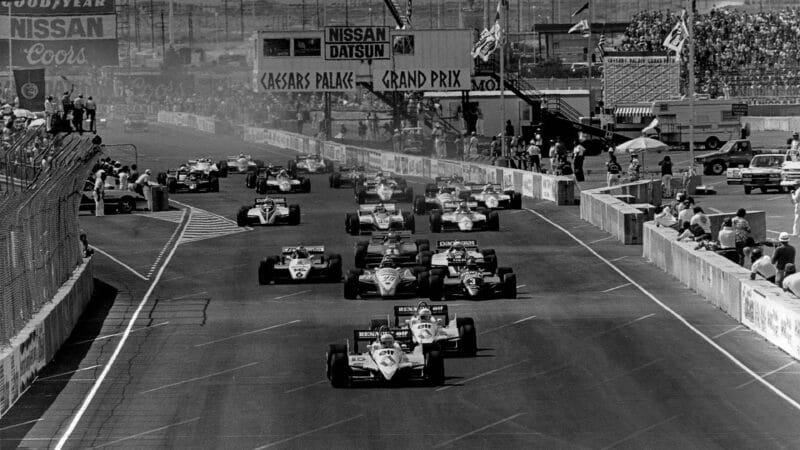
1982’s visit wasn’t much better than the year before…
Getty Images
So that left John Watson as Rosberg’s only threat – albeit a faint one. Forty-two points played 33 (in the days when a win scored nine). Wattie needed to win with Rosberg failing to score, to win the title on number of victories across the year. In a season when 10 drivers had won races the McLaren driver had two – Zolder, overshadowed by the death in qualifying of Gilles Villeneuve, and his passing masterclass from 17th in Detroit. Rosberg had just a single victory to his name, the Swiss Grand Prix that had actually taken place in France at Dijon (!) – and that had pushed him past Pironi’s points tally.
In short, Arnoux’s Renault turbo engine failed him (again), while Prost faded with tyre problems to finish fourth. Michele Albereto, who’d qualified a fine third, picked up the pieces to score his first F1 win, the 11th victor of a crazy season, breaking a drought for Tyrrell that stretched back to 1978.
And Wattie? He’d qualified poorly, in ninth, dropped to 11th at the start – then put in another great race drive to climb to second. Not enough. Rosberg kept his moustache clean on the way to fifth to become champion by five points from a tied Pironi and Watson.
The race was a couple of twists away from high drama. What if Alboreto’s Tyrrell had let him down? Or Rosberg’s Cosworth DFV had failed? Wattie would have been champ. But in truth, he knew he’d left too much to do around the Caesars Palace car park.
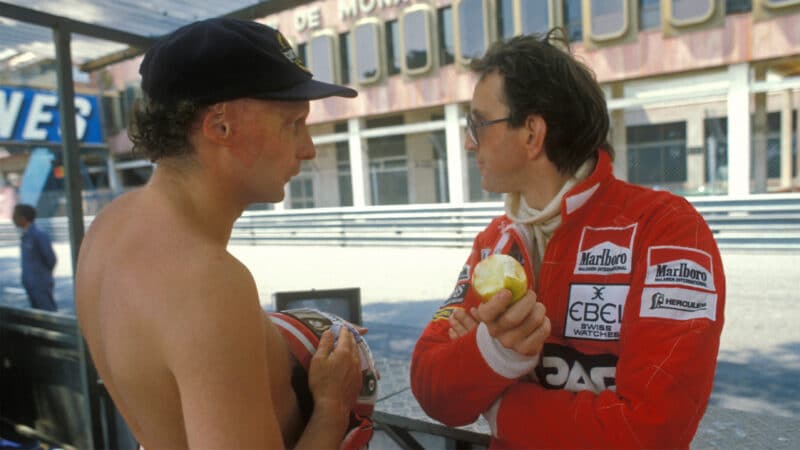
Niki Lauda (left) and John Watson (right) of McLaren at 1982 Monaco Grand Prix
Getty Images
Today, Wattie says he has “disappointments” from his career rather than “regrets”, and that “1982 is one of them. Some of it was down to me, some down to the team and the circumstances in the team. Niki [Lauda] had come in out of retirement at the start of the year and there was a little bit of a love affair, as you can imagine. What I regret is not having that amazing quality Niki had in terms of self-belief, and the ability to convey that. He was very succinct in everything he did. He was a smart operator.”
